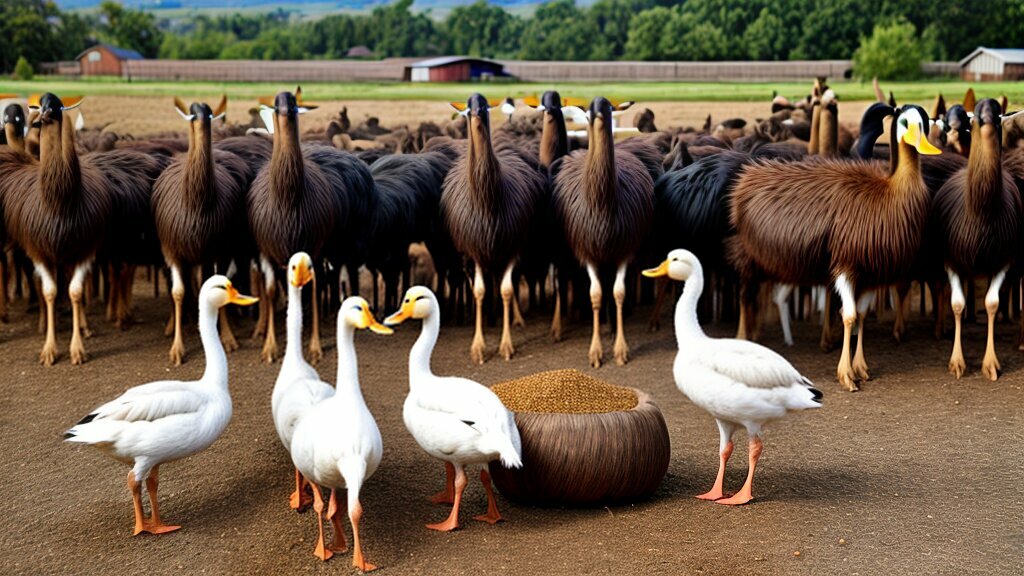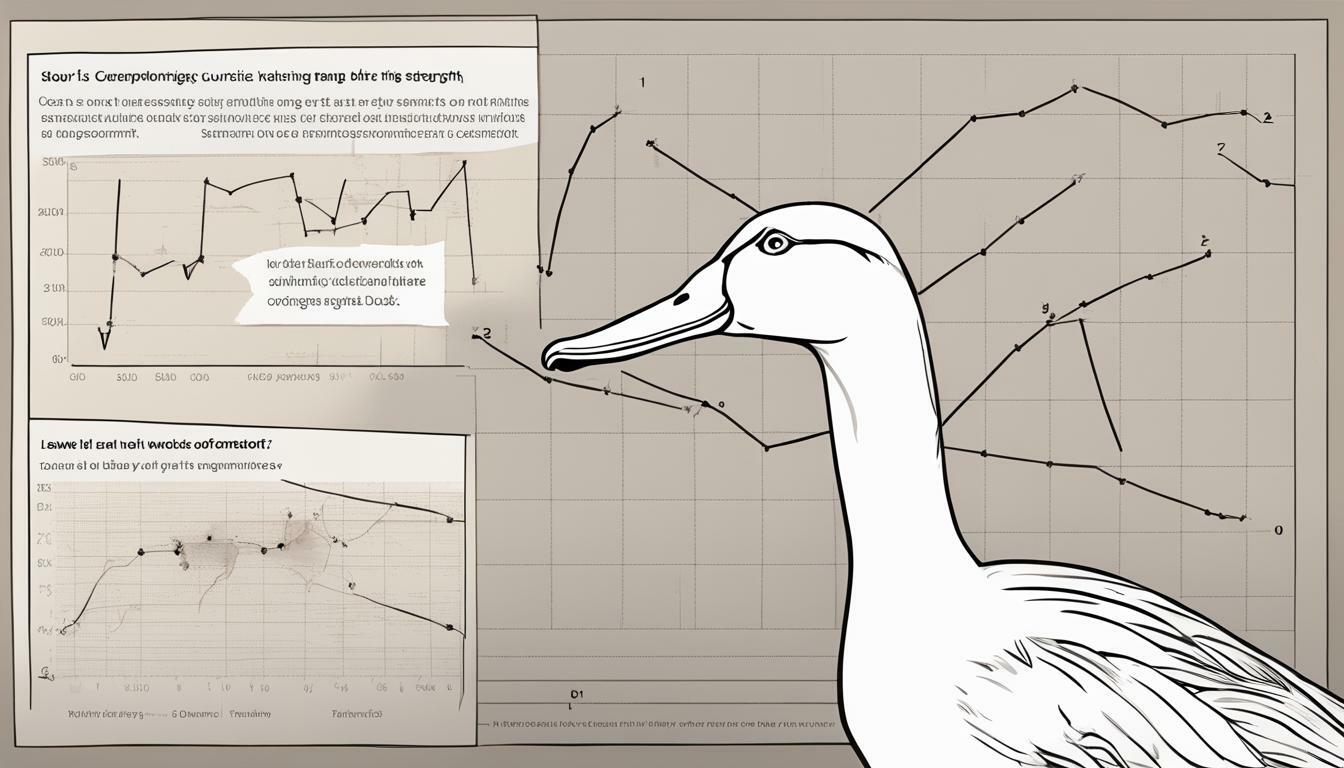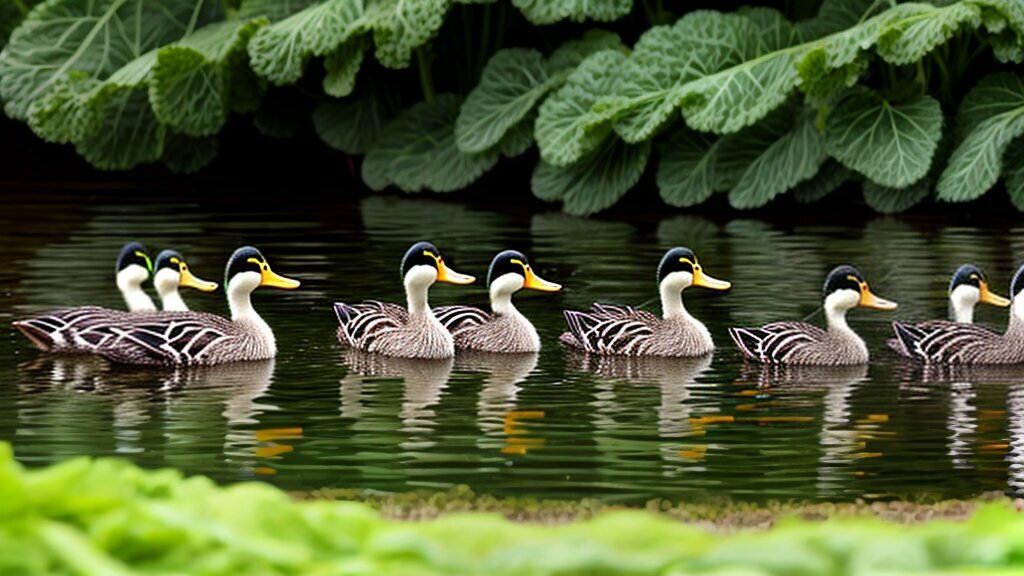Can Ducks Eat Goat Feed?

Table of content:
Ducks require a balanced and nutritious diet to stay healthy. Goat feed is formulated specifically for goats, not ducks. So an important question is, can ducks eat goat feed safely?
Ducks are omnivorous birds that can eat a diverse range of foods. In the wild, ducks eat plants, seeds, greens, fruits, insects, small fish and other aquatic creatures. This varied diet provides them with the carbohydrates, protein, fat, vitamins and minerals they need.
Domestic ducks can forage on grasses, weeds and bugs. But most duck owners provide a complete commercial duck feed. This allows them to carefully control the nutritional balance.
What’s in Goat Feed?
Goat feed is formulated to meet the nutritional needs of goats. Goats are ruminant animals with a four-chambered stomach. Their digestive system allows them to break down fibrous plant material.
Goat feed provides carbohydrates for energy. This comes from grains like oats, barley, corn and wheat. Goat feed also contains hay, forage or alfalfa to provide roughness.
Goat rations have 14-18% crude protein from plant and animal sources. This allows goats to grow muscles and produce milk. Feed is fortified with vitamins and minerals like calcium, phosphorus, selenium etc. specific to goat requirements.
Some feeds have molasses to bind ingredients and make it palatable. Vegetable oils, fats or coconut meal supply concentrated energy. Goat feed may also include probiotics, yeast cultures, enzymes and other additives.
Overall, commercial goat feed is nutritionally balanced for goats. But the composition isn’t tailored specifically for ducks.
Can Eating Goat Feed Hurt Ducks?
Goat feed provides many beneficial nutrients. But certain ingredients or nutrient levels may be unhealthy for ducks:
- Excess grain and carbohydrates – Goat feed has abundant grains and energy dense oils. Too many carbohydrates can lead to obesity and liver problems in ducks.
- Copper toxicity – Goat feed contains higher copper levels safe for goats. But excess copper builds up in ducks and causes copper poisoning.
- Low niacin – Ducks need more niacin than goats. Goat feed may provide insufficient niacin for duck requirements.
- Calcium imbalance – Goat feed is very high in calcium for milk production. Excess calcium can prevent ducks from absorbing proper nutrients.
- Medications – Some goat feeds contain medications like coccidiostats that are toxic to ducks.
- Omega-6s – Goat feed has higher omega-6 fatty acids which may promote inflammation in ducks.
- Moldy feed – Wet goat feed can grow molds that release dangerous mycotoxins hazardous to duck health.
These nutritional imbalances or toxins in goat feed can cause problems like:
- Digestive upset
- Diarrhea
- Liver damage
- Weight gain
- Lethargy
- Neurological issues
- Immune suppression
- Death in extreme cases
So feeding ducks a diet high in goat feed could lead to malnutrition, sickness and mortality. It’s safer to feed ducks a balanced diet formulated specifically for their needs.
Can Ducks Have Some Goat Feed?
While a 100% goat feed diet is risky, small quantities may be safer for ducks. Some duck owners do supplement their ducks’ normal feed with a bit of goat ration.
In moderation, nutrients like grains, protein, fiber, vitamins and minerals may provide benefits. A few handfuls of goat feed to add variety may not cause problems.
But it’s important to limit the quantity to a minority of the overall diet. Excess goat feed, or feeding it daily can increase the risk of toxicity and imbalance.
If adding goat feed, look for an all-natural vegetable formula without medications, urea and animal-by-products. Monitor ducks closely for any signs of adverse effects like sickness, weight issues or odd behavior. Stop feeding goat feed if any concerns arise.
Also ensure ducks have an optimal base diet with commercial duck feed, grit, greens and insects. This minimizes nutritional gaps and reduces the risks of goat feed. With a diverse foundational diet, small occasional quantities of goat feed may be ok. But it shouldn’t become a regular part of their menu.
In Conclusion: Feeding Ducks Goat Feed
In conclusion, it’s generally risky for ducks to eat significant amounts of goat feed. While goats and ducks are both farm animals, their nutritional needs differ quite a bit. Goat feed often contains excessive carbs, copper, calcium and medications that can be unhealthy for ducks.
Imbalances, toxins and anti-nutritional factors in goat feed can cause sickness and even death in ducks. It’s much safer to feed a balanced commercial duck ration for the bulk of their diet. This ensures ducks get all the protein, vitamins, minerals, amino acids and other nutrients they require, without any hazardous additives.
Occasionally supplementing a small part of their diet with goat feed may be ok. But restrict quantities to a minimum. Closely monitor duck health and behavior, and avoid feeding moldy, medicated or low-quality goat feed. Pay attention for any signs of trouble, and discontinue use if issues arise.
The best diet for pet or farm ducks contains a diverse mix of commercial duck feed, leafy greens, sprouted grains, insects and grit. With a solid nutritional foundation, ducks can get all the nutrients they need without risking the potential dangers of excess goat feed. Keep duck diets duck-specific for optimal health.
FAQ Feeding Ducks Goat Feed
Can baby ducks eat goat feed?
No, goat feed should not be fed to baby ducklings. Ducklings have very specific nutritional needs including high protein levels around 20-24%. Goat feed is too high in carbohydrates and calcium and too low in protein for a growing duckling. It may stunt growth or cause deformities. Only feed ducklings a proper commercial starter feed made for ducks.
Do ducks eat the same food as chickens?
Ducks cannot eat chicken feed, either. While ducks and chickens both eat grains, ducks require certain nutrients like niacin in higher amounts than chickens do. They also have different protein requirements. Eating chicken feed long-term can lead to malnutrition and blindness in ducks. Use only duck-specific feed for ducks.
Can ducks eat cow food?
No, cow food like cattle feed or hay isn’t good for ducks either. Cow feeds are extremely high in cellulose and way too low in protein for duck needs. Eating cattle feed could cause starvation and health issues in ducks over time due to nutritional deficiencies.
Are oats good for ducks?
Oats are healthy for ducks in moderation. Whole oats provide fiber, protein and carbohydrates. But oats are very high in phosphorus. Excess phosphorus can cause bone and kidney problems in ducks. Oats should be limited to a treat or just a small part of a balanced diet.
Can ducks eat rabbit pellets?
Rabbit pellets are higher in protein and nutrients versus goat feed. But they still differ from the optimal diet for ducks, and contain ingredients like alfalfa that may not be ideal. Limit rabbit pellets to an occasional treat. Don’t feed them as a dietary staple for ducks.
What treats can ducks eat?
Good duck treats include mealworms, crickets, chopped greens, squash, peas, corn, oats, bird seed and chopped fruit like berries. Avoid excess starchy/sugary foods. Ducks also forage well on pasture grasses, legumes, herbs and bugs. Varied treats add enrichment but shouldn’t replace balanced duck feed.
Welcome. I’m Adreena Shanum, the proud owner of this website, and I am incredibly passionate about animals, especially poultry. I founded adreenapets.com as a labor of love, stemming from my desire to share my knowledge and experiences with poultry enthusiasts worldwide.




